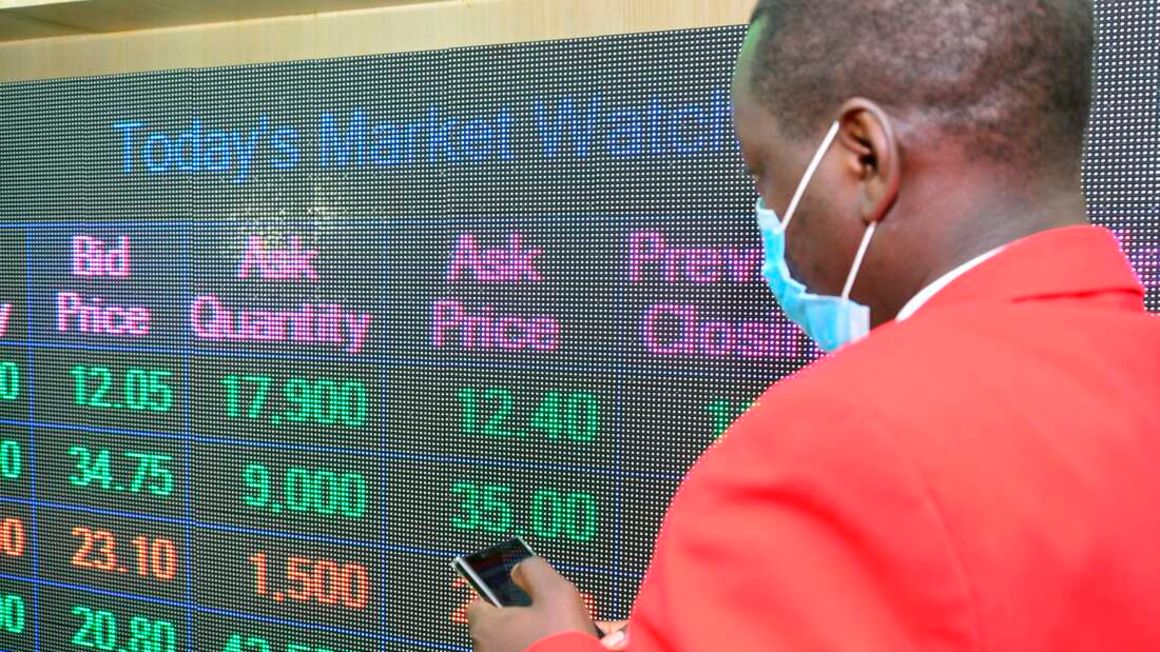A stockbroker at the Nairobi Securities Exchange trading floor. FILE PHOTO | NMG The price gains in large blue-chip stocks have helped the NSE beat its peers in Africa in returns this year, boosting its prospects of attracting capital inflows as global markets continue to recover from the Covid-19 pandemic.
In the year-to-date, the NSE All-Share Index has gained 18.7 percent to hit 180.5 points, backed by gains of between 16 and 37 percent in the prices of large stocks of Safaricom, Equity Bank, EABL and KCB.
These four stocks together account for 78 percent of the NSE’s total market capitalisation of Sh2.81 trillion, and therefore any movement of their prices tends to have a huge effect on the market.
The NSE All-Share Index is market-cap-weighted, meaning that the biggest firms in terms of market capitalisation tend to have more sway in determining the direction of the index.
Across the continent, most stock exchanges are in the black, reflecting the steady return of investors to the markets after last year’s flight to developed markets due to uncertainties caused by the Covid-19 pandemic.
The NSE’s gains, however, outstrip those of peer bourses in Nigeria, Egypt, Morocco, and Tunisia — classified as tier two markets — and also the Johannesburg Stock Exchange (JSE), the sole tier-one market in Africa.
The JSE All-Share Index has recorded a gain of 17.2 percent this year, with Morocco’s Casablanca exchange all share index up by 11.2 percent.
Tunisia and Egypt stock exchanges’ indices are up by 6.2 percent and 0.2 percent respectively this year, while the Nigeria Stock Exchange All-Share Index is down 2.6 percent.
Closer to home, East African stock markets also lag the NSE, with the Uganda Stock Exchange All-Share Index up 17.7 percent, the Dar es Salaam Stock Exchange up 10 percent, and the Rwanda Stock Exchange down 0.5 percent.
Performing better than its peers will help the NSE attract foreign portfolio inflows. In the seven months to July, the NSE saw its net foreign outflows fall to Sh4.9 billion, down from Sh21.4 billion in the first seven months of 2020.
Members of the public plant tree seedlings during this year’s Kaptagat Forest Annual Tree Planting exercise held at Kaptagat Forest in Elgeyo Marakwet County where 11,000 seedlings were planted on July 23, 2021. PHOTO | JARED NYATAYA | NMG The advancement of forestry is intrinsic in achievement of sustainable development global goals.
This is due to the intricate roles that […]
